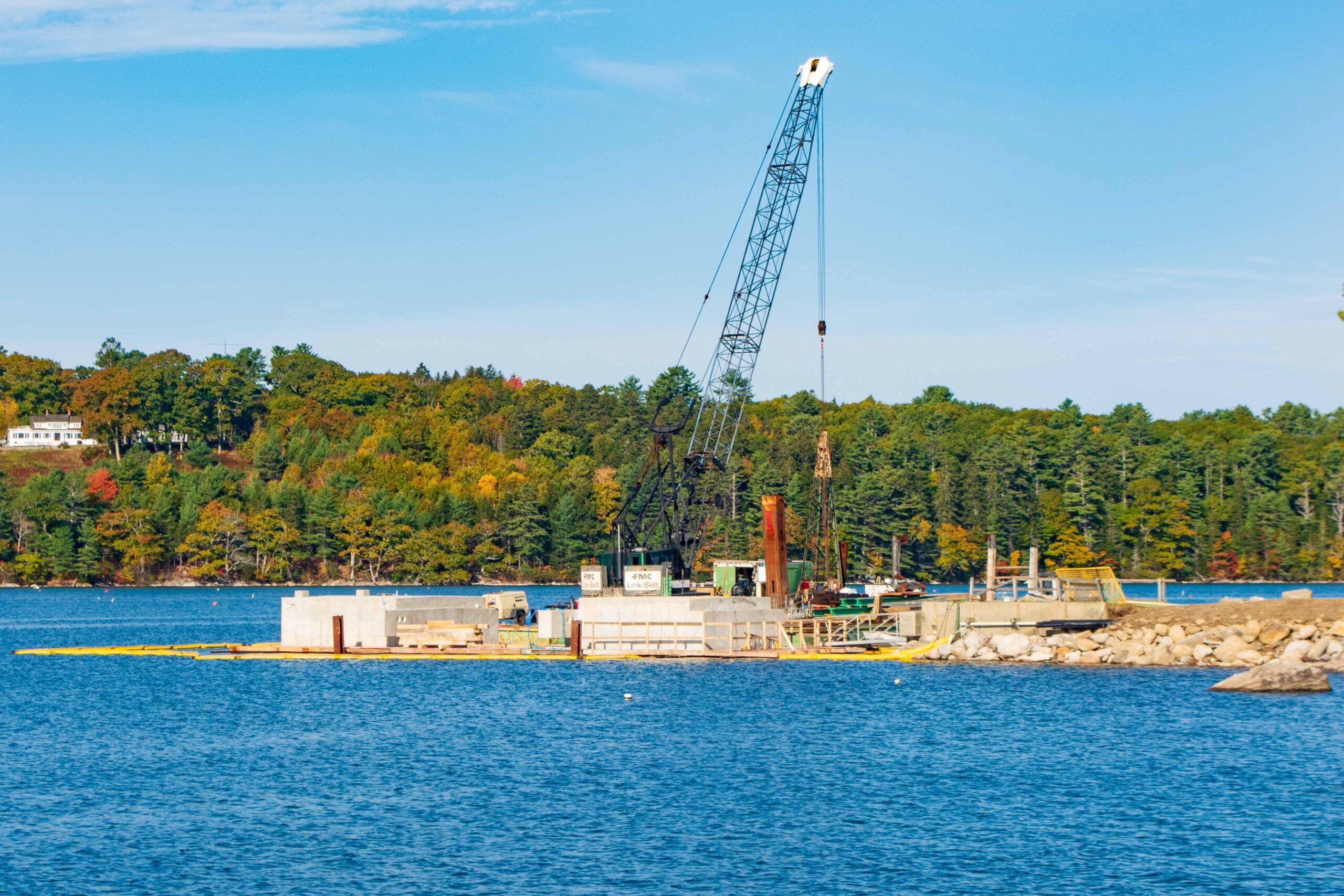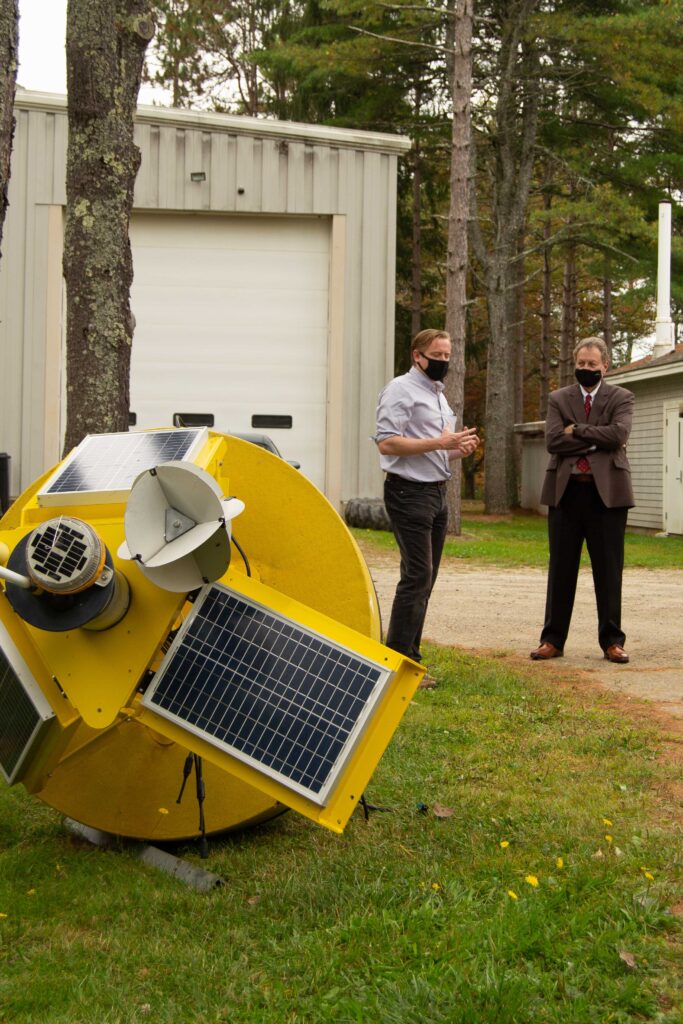
Darling Marine Center Waterfront Construction Underway
Walpole, Maine — Last month University of Maine President Joan Ferrini-Mundy and U.S. Assistant Secretary of Commerce for Economic Development Dana Gartzke visited Walpole for a tour of a waterfront infrastructure improvement project that commenced earlier this year at University of Maine’s marine laboratory, the Darling Marine Center.
The tour led by DMC Director Heather Leslie and DMC Laboratory Manager Timothy Miller provided an overview of the project, which will upgrade the center’s flowing seawater system, renovate its oldest seawater laboratory and replace its 50-year-old main pier. The improvements are funded by an award from the U.S. Economic Development Administration with matching funds from UMaine and state marine bond funds.
“Amid all the challenges people are facing right now, we’re grateful for the support of the state and federal government to undertake this project,” said President Ferrini-Mundy. “These improvements will enable the Darling Marine Center and University of Maine more broadly to better serve the people of Maine.”
DMC researchers are helping the state’s marine fisheries and aquaculture sectors adapt, diversify and grow in response to changing environmental conditions. Scientists and students based at the DMC conduct applied research and work collaboratively with marine industry professionals to develop new value-added marine products and bring them to commercial scale. DMC researchers and industry partners also provide on-the-job training and experience to university students, the next generation of marine science professionals.

Prock Marine and The Penobscot Company, both midcoast Maine-based companies, have the primary contracts for the project. They have tapped local electricians and other tradespeople to execute the complex project, which requires installing a flowing seawater system – essentially the circulatory system of the marine laboratory. This system can sustain thousands or millions of marine organisms, depending on the experiments that DMC scientists and their partners are conducting.
When completed, the upgraded infrastructure will benefit faculty, students and the center’s partners – fishermen, aquaculture entrepreneurs, marine industry professionals and community members — through collaborative research, workforce development, and business incubation programs.
“Maine’s fisheries and aquaculture industries depend on healthy coastal and oceans,” said Leslie. “Understanding these connections between people and oceans, and how they are changing is central to our work at the DMC. We thank the U.S. Economic Development Administration and all those who are supporting this important project.”
